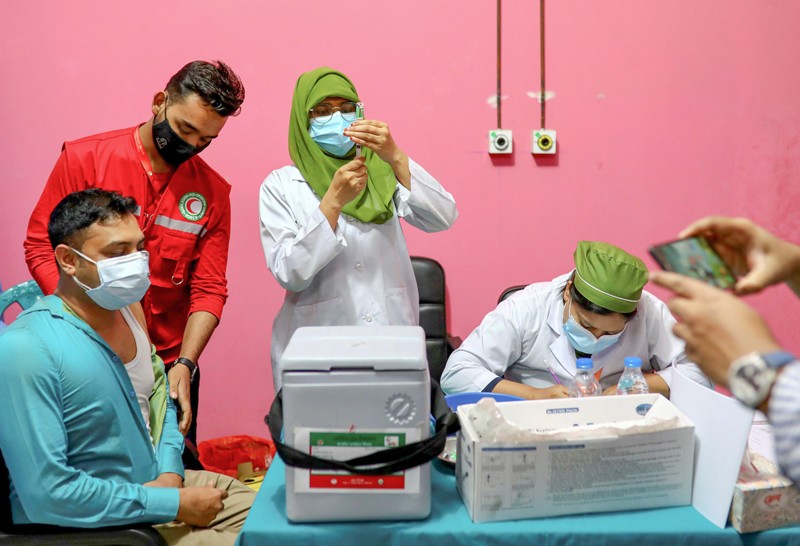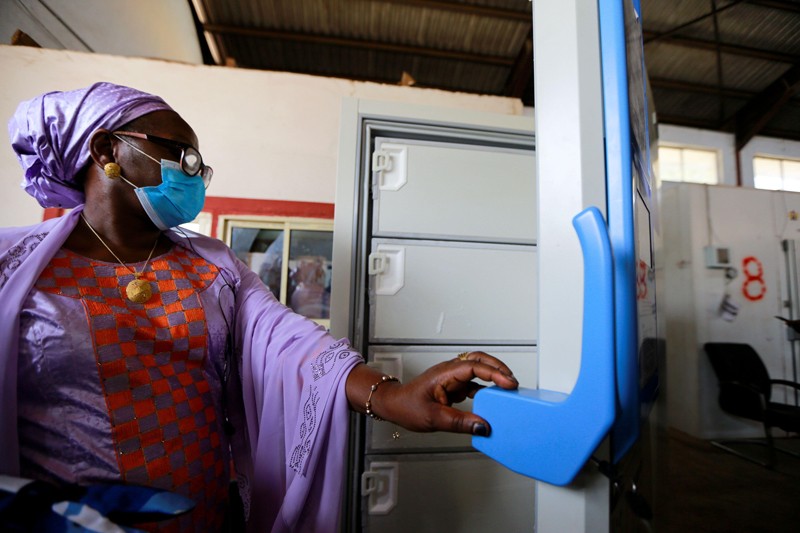Yusuff Adebayo Adebisi is aware of that a vaccine that provides 70% safety from COVID-19 could be a useful instrument from the coronavirus pandemic in Nigeria — specifically if that vaccine is low-priced and doesn’t have to be saved at exceptionally chilly temperatures. But what if one more vaccine — a person that is extra expensive to buy and to retailer — was 95% effective?
“Should we send out the fewer-successful vaccine to Africa? Or should really we glance for a way to strengthen the chilly storage?” asks Adebisi, director for analysis at African Younger Leaders for World Wellness, a non-profit firm based mostly in Abuja.
These are the varieties of dilemma struggling with researchers and government leaders all over the world, as they acquire stock of the emerging selection of coronavirus vaccines and try to determine which will be most valuable in putting an conclusion to a pandemic that has previously taken virtually 2.5 million lives. It is a decision shaped by confined supplies and hampered by limited data, claims Cristina Possas, a general public-well being researcher at the Oswaldo Cruz Foundation in Rio de Janeiro, Brazil. “It is not probable to examine these vaccines at this level,” she claims.
In Bangladesh, health and fitness economist Shafiun Shimul at the College of Dhaka worries about the threats if governments delay vaccinations for months to make chilly-chain infrastructure. “If you want to command an infection, you have to count on one thing that is contextually doable for you — it’s not only about performance,” he says. “If they wait for perfection, I think it will be a very long wait.”
The ‘best’ vaccine
Given the demand for pace amid minimal supplies, any exertion to rank the vaccines should choose into account not only their documented efficiency, but also materials, charges, the logistics of deploying them, the longevity of the defense they offer you and their ability to fend off rising viral variants. Even so, lots of men and women may possibly discover it difficult to look absent from scientific-demo results that propose an efficacy hole. So significantly, extra than 200 million doses of coronavirus vaccines have been delivered, and information have been rolling in from clinical trials in various international locations. The top-line benefits from those people experiments counsel a variety of protection: from 95% efficacy for a vaccine designed by Pfizer of New York Town and BioNTech of Mainz, Germany, to about 70% prompt by preliminary benefits on a vaccine built by AstraZeneca of Cambridge and the University of Oxford, both in the United Kingdom.
It might be tempting, but it merely isn’t achievable to instantly evaluate the performance of vaccines on the foundation of individuals outcomes by yourself, cautions David Kennedy, who scientific studies the ecology and evolution of infectious diseases at Pennsylvania Point out College in University Park. Every single evaluate of efficacy will come with a diploma of uncertainty, and trials might have differing definitions of vital standards, this kind of as what constitutes a ‘severe’ bout of COVID-19 in contrast to a ‘moderate’ a single.
Added to this are the demographics of each demo: in the scenario of the Oxford–AstraZeneca vaccine, for case in point, the builders gathered couple of facts about the vaccine’s efficacy in people today in excess of 65. This led Germany to authorize the vaccine only for individuals under 65, even though the European Medications Company suggests it for all grown ups.
And the vaccines had been studied at distinct occasions in various nations around the world. Each and every trial can only provide a snapshot of security from the viral variants that ended up dominant in that time or place, suggests Kennedy. “That number relates to a distinct place in time,” he states. “How that interprets into defense around 1 to two many years is not the exact.”
This place is specifically relevant as the environment grapples with emerging coronavirus variants, some of which appear to evade elements of the immune responses stimulated by vaccines. Scientists very first noticed a single these variant, named 501Y.V2 or B.1.351, in December in South Africa, where by it now accounts for the bulk of new coronavirus infections.
That variant has considering the fact that been recognized in nations around the earth, and the extent to which it might decrease vaccine efficacy continues to be unclear. Laboratory reports and clinical-demo info suggest that most vaccines will nevertheless supply substantial security. But the AstraZeneca vaccine faltered terribly: in an investigation1 of about 2,000 people today in South Africa, it did not protect in opposition to gentle or reasonable COVID-19 owing to the variant.
Faced with these final results, the authorities of South Africa introduced on 7 February that it would place the roll-out of the AstraZeneca vaccine on keep, in spite of the shot becoming substantially less expensive than Pfizer’s vaccine, and easier to keep. AstraZeneca and the University of Oxford have granted permission to generics makers these as the Serum Institute of India in Pune to crank out doses as speedily as feasible, and the vaccine experienced been thought of the finest hope for Africa, states Joia Mukherjee, main medical officer of Partners in Wellness, a charity dependent in Boston, Massachusetts, that operates in 11 nations around the world. “But if it is not productive against the South African variant, we’re heading to have to swap tactics,” she says. “To march forward and use it when we know that the variant is spreading by Africa, specifically southern Africa, is malpractice on a worldwide scale.”
However, some areas in Africa could still benefit, says infectious-disease expert Loice Achieng at the College of Nairobi. The 501Y.V2 variant has not however develop into dominant in Kenya, she claims, and it is nonetheless possible that the AstraZeneca vaccine could secure against intense COVID-19 brought about by it. “I think it is almost certainly anything that shouldn’t be composed off,” she states.
Greater choices
There are hopes that a lot more acceptable vaccines will come to be readily available to fill some of the gaps. Johnson & Johnson in New Brunswick, New Jersey, for example, is creating a solitary-shot vaccine that would dramatically simplify vaccine roll-outs. But it done clinical trials only in late January, and it is not but crystal clear how speedily or efficiently the enterprise will be ready to start off creating tens of millions of doses, states Jerome Kim, director-general of the Intercontinental Vaccine Institute in Seoul.
The earth is nevertheless waiting around for crucial data about the vaccines that are currently being rolled out now, states Kim. Medicines do not normally complete as well in the authentic entire world as they do inside the strict confines of a clinical demo. Early details from Israel’s enormous vaccination campaign propose that the Pfizer vaccine outcomes are holding up, but it will just take months to acquire equivalent information about other vaccines.
Scientists are also commencing to test a array of doses, schedules and combinations of vaccines. They still do not know how very long vaccine-mediated immunity will very last, or how properly the several vaccines lessen coronavirus distribute — all aspects that could shape which is deemed the ‘best’. “It’s not just a make a difference of having them out as speedy as probable,” states Mark Jit, a vaccine epidemiologist at the London University of Cleanliness & Tropical Drugs. “It’s building confident that as we get them out, we are putting in area the surveillance scientific studies to see how nicely the vaccines are carrying out in different predicaments.”
Inevitably, it could be probable to be extra strategic about which vaccines to use in which settings, says Kim. But for now, the information just are not there. “You’re observing these things transform in serious time,” he claims. “In the upcoming month, we could believe one thing rather unique.”


